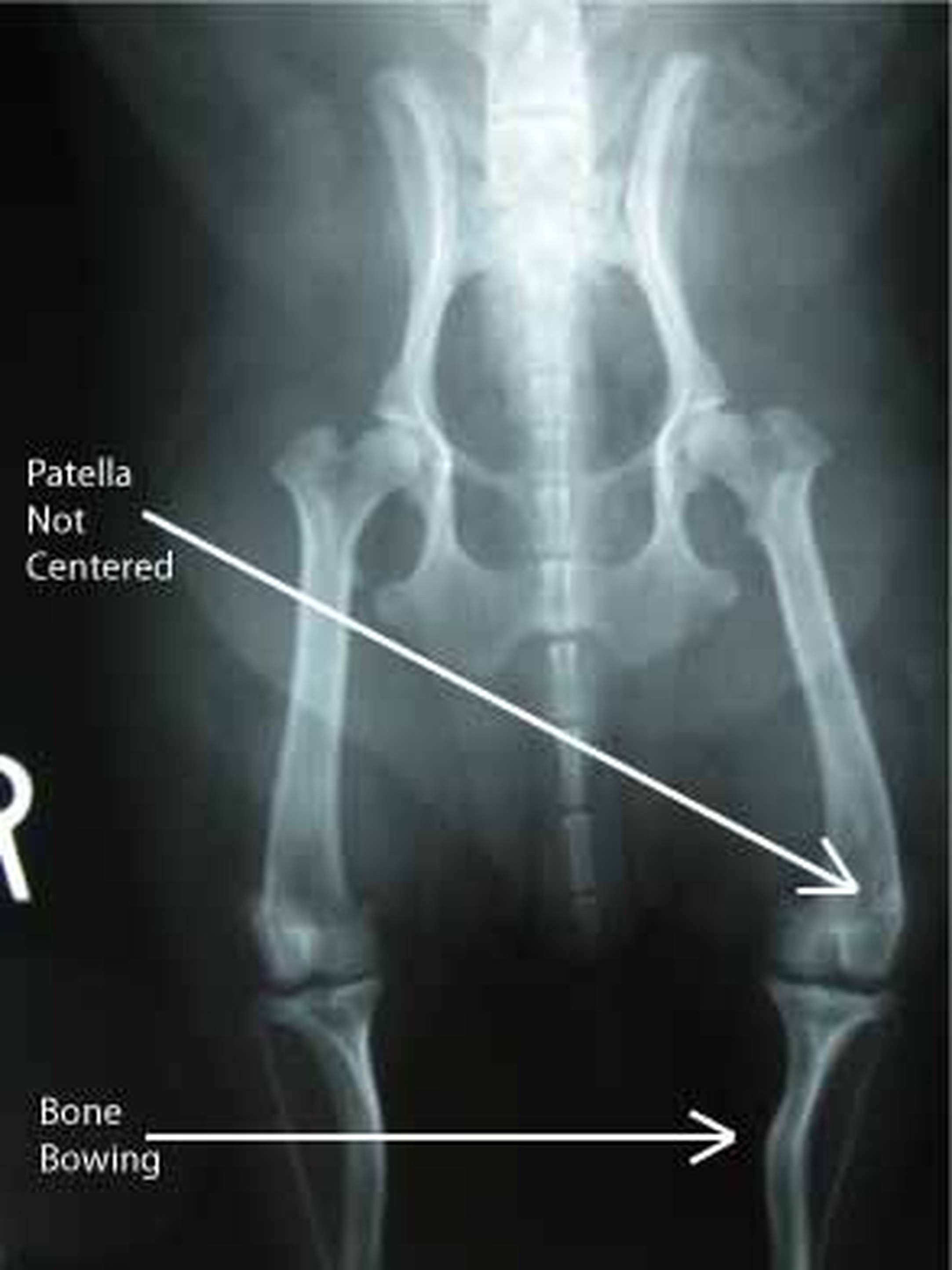| Patellar Luxation in Dogs Patellar luxation occurs when the dog's kneecap (patella) is dislocated from its normalanatomic position in the groove of the thigh bone (femur). When the kneecap is dislocated from the groove of the thigh bone, it can only be returned to its normal position once the quadriceps muscles in the hind legs of the animal relax and lengthen. It is for this reason that most dogs with the condition will hold up their hind legs for a few minutes. A dislocated kneecap is one of the most prevalent knee joint abnormalities in dogs. The condition is most common in toy and miniature dog breeds such as the Yorkshire Terrier, Dachshund, West Highland White Terrier (Westie), Pomeranian, Pekingese, Chihuahua, and Boston Terrier. Female dogs are 1 1/2 times more likely to acquire the condition. Symptoms and Types The specific symptoms of a dislocated kneecap will depend on the severity and persistence of the condition, as well as the amount of degenerative arthritis that is involved. Typically, a dog with a dislocated kneecap will exhibit prolonged abnormal hindlimb movement, occasional skipping or hindlimb lameness, and sudden lameness. The dog will rarely feel pain or discomfort once the kneecap is out of position, only feeling pain at the moment the kneecap slides out of the thigh bone's ridges. Causes A dislocated kneecap is usually caused by a genetic malformation or trauma. The clinical signs of the condition will normally start showing approximately four months after birth. Diagnosis A dislocated kneecap is diagnosed through a variety of means. Top view (craniocaudal) and side view (mediolateral) X-rays of the stifle joint, hip, and hock may be used to detect bending and twisting of the thigh bone and larger bone of the lower leg. Skyline X-rays may reveal a shallow, flattened, or curved groove of the thigh bone. A fluid sample taken from the joint and an analysis of the lubricating fluid in the joint (synovial fluid) will show a small increase in mononuclear cells. It is also necessary for the veterinarian to perform an examination by touch to feel for kneecap freedom. Treatment Medical treatment for kneecap dislocation has very little effectiveness; surgery is the preferred treatment of choice for severe cases. Surgery can correct both the affected structures and the movement of the kneecap itself, and in 90 percent of cases, frees the dog from lameness and dysfunction. The kneecap may be fastened on the outside of the bone to prevent it from sliding towards the inside. Alternatively, the groove of the thigh bone may be deepened so that it can better hold the kneecap. Living and Management Follow-up treatment after successful surgery will include leash walk exercise for one month (avoid jumping) and yearly examinations to check for progress. It is important that pet owners are aware that there is a high possibility of recurrence (48 percent), although the dislocation will be considerably less severe than the original incidence. Because kneecap dislocation is genetically inherited, the breeding of affected dogs is highly discouraged. PreventionThere are currently no known preventative measures for this medical condition. |
|
1 Comment
|
PET SCAN Blog:
The INNER Pet... Pet Health Inside & Out The goal of this blog is to help educate pet owners by sharing pet health facts and interesting pet news articles Archives
September 2019
Categories
All
|


 RSS Feed
RSS Feed
